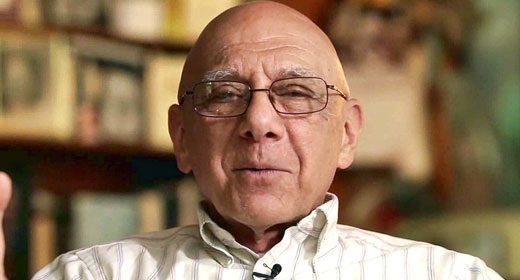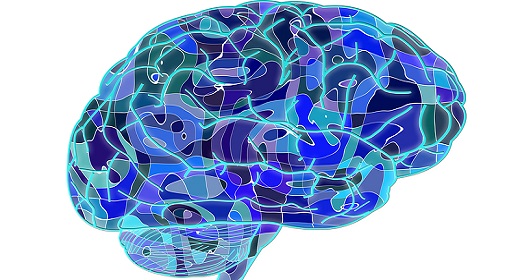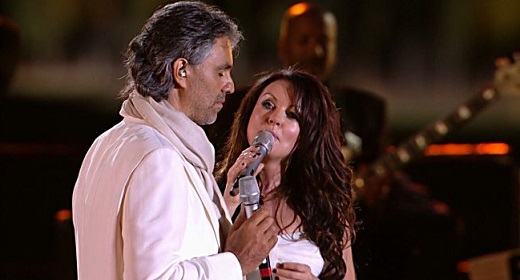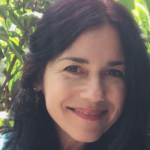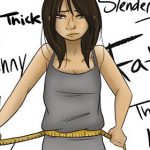by Caroline Myss: My most recent on-line Reflections class, as many of you might already know, was,
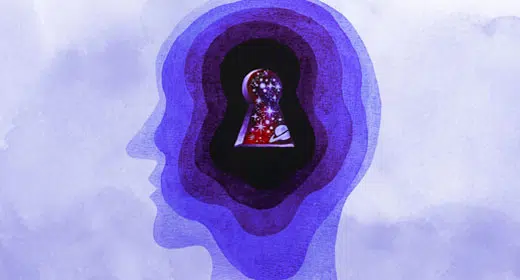 That’s an ordinary enough comment, to be sure, and no doubt one we have all said. But it happened that I knew the woman that these people were speaking about and also I knew quite a bit about the difficulties that are presently overwhelming her and her husband. Her life situation brought to mind so many of the ways I have thought about the speed at which our life can change and how challenging, if not terrifying it is when change comes in the blink of an eye or Buddha speed, as I often call sudden change. Change always means that something new is entering our life and that something no longer essential is leaving. We usually can’t discern what, when, where, and how the mechanisms of change will work in our life. They just kick into high gear at times while always moving along at low gear moment-to-moment. Change, as Buddha said, is constant. It is the way of the Universe. We cause ourselves great pain when we make choices in life that do not cooperate with those changes that are necessary, essential, obvious, or sudden and catastrophic. In other words, we either move forward with wisdom or woe, but we must move forward.
That’s an ordinary enough comment, to be sure, and no doubt one we have all said. But it happened that I knew the woman that these people were speaking about and also I knew quite a bit about the difficulties that are presently overwhelming her and her husband. Her life situation brought to mind so many of the ways I have thought about the speed at which our life can change and how challenging, if not terrifying it is when change comes in the blink of an eye or Buddha speed, as I often call sudden change. Change always means that something new is entering our life and that something no longer essential is leaving. We usually can’t discern what, when, where, and how the mechanisms of change will work in our life. They just kick into high gear at times while always moving along at low gear moment-to-moment. Change, as Buddha said, is constant. It is the way of the Universe. We cause ourselves great pain when we make choices in life that do not cooperate with those changes that are necessary, essential, obvious, or sudden and catastrophic. In other words, we either move forward with wisdom or woe, but we must move forward.
Sometimes we can see unwelcomed high gear challenges in our life coming at us, like an unwelcomed guest that suddenly appears on the far horizon walking slowly toward our front door. Eventually we know that person will arrive – and that’s all there is to it. We don’t know how long he will stay or how demanding he will be or if he will fall ill while he is visiting or if he is an alcoholic, thief or perhaps by some twist of the Universe, a blessing in disguise. All we know is that our life is about to change without our consciously initiating that change. The amount of chaos that this uninvited visitor will bring into the house, though unknown, can be minimized, however, by whatever preparations we make since we know the visit is inevitable. That is, at least we can see that visitor walking toward us. Such an example in life might be saving small sums of money each paycheck for the inevitable rainy day. Now whether we make those preparations is the question, isn’t it?
Then there is sudden unexpected or expected change: Getting released from a job you thought was secure; a weather catastrophe that wipes out your home; discovering your spouse/partner wants a divorce; the sudden death of a family member. You get the picture. You get up in the morning with one life situation and go to bed in a completely different world. You get up married and go to bed a widow. You wake up in your own bed and by evening you are sleeping in a hotel because your home has been wiped out in a flood or fire. I have so often wondered how people cope with that experience of having to shift from one reality to another – just like that. I was this and now I am that – wham.
I have read several accounts, as perhaps you have, of people who have won lotteries. One moment they living ordinary lives with ordinary earnings and the next moment, they are worth multi-millions of dollars. While people fantasize about this type of experience, the shared conclusion from the stories I have read is that the majority of people would say that sudden wealth turned their lives up side down and not in positive ways. They felt isolated from close friends. Needy relatives came out of nowhere. Law suits appeared for incidents that were absolutely preposterous. If you can understand the journey of life as one continuous negotiation of power with every action, event, choice and experience being the means through which power is exchanged, then view winning the lottery or the loss of a job as one and the same type of experience in that both represent an immediate shift in the balance of power in your life. Winning the lottery suddenly increases your field of power, let’s say as if you went from being in charge of your apartment to having responsibility for 100 apartments – instantly. And a job loss is the reverse. You were accustomed to managing a field of power and within a second, it’s gone. A rapid and immediate shift of the power field you are accustomed to living in shifts your relationship to everything around you. If you are accustomed to the voltage of power from running 100 units of apartments, you are used to getting things done fast. Take that away and you now have an entirely different relationship with speed. Your size of “size” and importance evaporates. On the other hand, what if your sense of self-esteem is in no way prepared to handle the pressure of 100 apartment units – but now you have to. The weight and pressure of that is liable to cause you to abdicate your power to those all too willing to “help you out”, which, as so many stories report, tends to be the case. Said differently, a number of lottery winners have lost it all through careless investments and spending. The immediate shift to that much power was more than they could adjust to in the same way that the loss of power often traumatizes others.
Buddha taught that change happens in the blink of an eye. No one is immune to the truth of that law – and it is a law. It is one of the governing laws of the universe. Change is constant. All life exists in a continual state of change. And all life can change in the blink of an eye.
On paper, these laws seem so passive – almost harmless. But they are pure power. These laws are the sound of everything – the ocean, the wind, fire, rain, birth, death, birds in flight and all things we cannot hear, like the sound of aging second-by-second and the sound of a thought illuminating your mind or an emotion soothing your heart. We are never still, not even for a micro-second. Change is constant. It is in everything.
Yet, we invest much of our energy on making choices based on the assumption of the permanency of the world around us. We will always have this and we will always be with these people and we will always have security and we will always have flexible bodies. You have your list of “always” and I have mine. We should meet somewhere and burn them in a ritual of release, as they are worthless.
We discover the worthlessness of our illusions when a crisis hits. Or, to say this differently, a crisis is something that happens that we never thought could or would happen, at least not to us. Most often, we are unprepared for crises, even those we do anticipate, such as the impending death of someone with a prolonged illness. But those crises that come upon us instantly are among the most serious game changers in our lives. And that brings me back to this woman I know whom I mentioned at the beginning of this Salon. Her husband fell down the stairs and that fall took the whole of their lives with him – just like that. He is now in a wheel chair, he lost his job, their financial situation is dire, they have to sell their home, and so on. One trip on the stairs – just like that. This situation was a manifestation of “change happens in the blink of an eye” – more than I had witnessed in years.
While the woman/wife at the center of this drama went from living her ordinary life with her husband to living in a catastrophic situation, I realized as someone very close to her that she was in a type of trauma zone. Within a few days, she went from having a relatively secure life to losing everything, including a functioning husband. Sitting with her in silence in her home, I realized that she had no idea what type of help she needed in that moment. She was incapable of evaluating the enormity of her situation much less the reality that there were minimal funds available to pay for upcoming bills much less more than three-months mortgage payments.
I wondered, “What type of help should I offer?”
She needed to sit still. That’s all. And so we did. I did not ask anything specific, as I could tell that this woman was coping with comprehending all that was happening to her. She was still in disbelief and I left and told her I would check in the next day. Later that day, I heard a mutual acquaintance comment, “Well, if she needs help, she’ll ask for it.”
I thought about that comment for hours – and then more hours. And then all night. How could any one – you, me, this woman I know so well – possibly know what type of help she needs so soon after disaster hits? After a flood or fire, it’s obvious what type of help you need on one level – you need shelter and all that comes with it. But I am not certain that even people who have gone through the loss of homes through natural disasters have the stamina to immediately name what type of help they need. What they do need is someone to ask for help and aid on their behalf until the shock wave of loss settles down. Then, little-by-little, the traumatized person can re-emerge into the new world she now resides in gathering the stamina to rebuild what was lost.
I understood during my first evening with this woman that the capacity to help another person was both an instinct and an art; in fact, that the subject of, Help, itself was one worthy of deep reflection and discussion. How do we reach out to another? Are we the right person to help another? Are our motives always clean?
And conversely, when and how do we ask for help when we need it? Of course, there are endless types of “help” that we require at various times in life and for different reasons – from wanting people to help you with moving out of a home to helping you through a personal crisis. And then there are the more endurance expressions of help, such as providing long term support for a person who is faced with rebuilding an entire segment of his or her life. The bottom line is: We all need help at some time, in some way.
While I find absolutely everything about this topic fascinating, the category of Self-Help really caught my attention within the context of examining “help as instinct or art”. We are accustomed to seeing Self-Help books now. They are among the largest selling category of books in publishing, in fact. (We can’t get enough help, it seems.) The categories for Self-Help include: Weight loss, Romance, Happiness, Marriage, Finding Your Soul-Mate, Eating Right, Finding Your Soul Career, Finding Your Life Path, Self-Empowerment, Self-Development, Discovering Your Leadership Skills, How to Get in Shape, Visualizing Success, Healing Yourself, Healing Cancer, Finding Love After Divorce, Life After Menopause, Living in the Now, Discovering Your Past Lives, and so many other topics. You get the picture. You can find a book about every thing and any thing that your Inner Self can possibly want, crave, desire, or fantasize about. We are living in the Golden Age of the Inner Self.
What do You Really Need?
We are the generations that gave rise to the “Self-Help” phenomenon. It never existed prior to the late 60’s/early 70’s. With an expansive and open attitude toward therapy and inner growth, the Self-Help field rapidly became an industry in which authentic needs eventually evolved into manufactured ones. I am very fond of teaching the power of words. Every word in our vocabulary contains access to a world unique to the meaning of that world. Prior to the 1960’s, the word, “self”, was the prefix to “ish”, forming the word, “selfish”. To indulge the “self” too much or in any way that threatened the conventions of the day was viewed by the tribe or collective as negative, rebellious, socially questionable or border-line criminal behavior. A person’s “self” had to be carefully managed by the collective, guided and guarded by their tribe and by traditions in order to sustain and maintain the greater good of the whole. And you know what? That system worked for centuries. It was essential for centuries.
Then came the social, sexual, cultural and civil revolutions of the 1960’s that shattered all forms of conventions and boundaries. A new template exploded into our consciousness – the Inner Self. I believe that the emergence of the archetype of the Inner Self is that core ingredient that sparked the evolution of human beings into the psychic/energy age of evolution. Decades have gone by since the 1960’s, the decade when the Inner Self had to make itself known and garner physical stamina through battling social revolutions. Imagine that an actual transformation of power began in the collective during the 1960’s in which every one who felt controlled by that word, “selfish” sensed a repulsion for that word starting to bubble up inside of them. Simultaneously, a craving began in countless numbers of people during that electric decade to explore Self-expression, Self-discovery, Self-anything. The Inner Self was like being given a Moon Suit for exploration into our Inner Frontier. The birth of the Inner Self felt then and still does feel like a wild sensation and craving to just break out of anything limiting, to look forward and not backward and to try out this and that. You feel like a new born with a backpack of old stuff you need to get rid of as quickly as possible. You want to travel light, far and fast and not just physically. You want to travel emotionally, intellectually, spiritually and psychically. What is inside of my Inner Self? Who am I? Nothing feels as wondrous, as liberating, as intimidating, as thrilling as the sensation of the birth of the Inner Self.
Today it is not uncommon for children to be reared in homes in which parents, already aware of their own Inner Self, abide by that conscious truth in their method of parenting. They address their children with an awareness of their emotional and psychological development. Awareness, however, is not the same as the experience of awakening. It is still the case that life itself provides individuals with an awakening experience of their Inner Self, which can be anything from being moved to a mystical moment through poetry or prayer to the trauma of abandonment, including being forced to encounter your Inner Self because of the diagnosis of a critical illness. The purpose of these experiences is that you shift primary attention – your center of power – to your inner self or your inner nature in order to begin the long, long rigorous journey of learning about the power of your Inner Self in union with the laws of creation. That’s a complicated way of saying that the purpose is to get on with the business of breaking away from your own illusions, from hurting yourself and others with bad choices – because every choice has powerful creative consequences. One more time: The journey of life is only about learning/discovering the power of creation contained within every one of our choices and that we are attached/responsible for the creative consequences of each choice we set into motion. The Law of Karma speaks to this truth as does the more scientifically stated Laws of Cause and Effect and Action and Reaction. Why we make the choices we do and whether we eventually realize that choice without spiritual guidance is risky business are individual matters that are played out within the quality of our relationship with truth. (Another Salon required).
But at the very least, once you have established a sense of your Inner Self, as most of you have, attending to your own well being and self-care becomes an essential part of your life. This task of attending to oneself – of putting on your own oxygen mask first before responding to another, as they say – is the impetus that fueled the Self-help industry.
So, at long last, two very important questions to ask yourself, “Do you know what type of help you really need? And are you good at helping yourself when you really need help?
Let’s think about that.
Knowing what you need is not a small task. How many times do people have to reach a breaking point in their life, a crisis situation, in order to recognize that they are making foolish choices for themselves? I would like to highlight an important point that cannot be emphasized enough: There is no such thing as an insignificant or powerless choice.
What qualifies as a foolish choice? That’s certainly different for each of us but in general, let’s agree that choices that result in creating painful or high risk situations for ourselves that could otherwise have been avoided are just plain foolish. Such choices generate self-inflicted pain. As someone who has been in the healing arts for more than three decades now, I can say with confidence than a great deal of the suffering that people experience in life is the result of self-inflicted choices.
If you truly want to “help yourself”, then make the choices that work, that heal, that move you out of situations or patterns of behavior that drain your energy. Choosing to stay in anything negative or to behave negatively hoping others will feel badly for you or come to your rescue is the same as choosing to reside in hell. Why would any one do that?
Similarly, though it is far easier said than done, we realizing that are all the primary care-takers and care-givers for our physical body, mind and soul. We are the only resident in charge of our body. We are it. Every choice we make either helps or hurts our physical body. I have lived on the road all my professional teaching life – and that’s a long time. I’ve traveled alone for most of those years. About seven or eight years ago now, while crossing Canada on a multi-city teaching tour, I had to spend about a day and a half in this one town. The hotel was located out in the middle of nowhere. Though Canada is stunningly beautiful, this area was flat, with few trees – a dry, desert-like grassy area. I had hours and hours to fill in this grim hotel room. The weather was cold, rainy and bleak. It was early November and Christmas advertisements were already playing on television and though I am not by nature sentimental at all, the dismal isolated setting combined with the cold, damp weather created a psychic atmosphere in the room that sent me into a life review: Is this all my life has been? One horrible hotel room after another?
The loneliness that hit me that evening weighed so heavily upon me that I wondered if somehow I had stored away decades of lonely, sad feelings and that some how that evening all of them gathered into one, huge tsunami attempting to drown me in my own emotions. I went through a type of life review, the sort people talk about who have had near-death experiences. I could not stop this inner “march of memories” that spontaneously filled my mind, not unlike a bad movie that you get stuck watching on an airplane. I would have to list that day and a half as among the worst of my life. I still shutter when I think of it and when I meet people who tell me that they suffer from depression, my heart hurts for them all the more, as I wonder how such crippling emotional/psychic pain can be endured.
Perhaps it took that degree of crushing pain for me to finally change my own life and professional rules, to help myself instead of talking about helping myself. Now I no longer travel alone. And if I do, I make sure a close friend is in each workshop. I would rather provide the type of help I need to maintain my well being than require help to pick up the pieces of myself due to neglect. Good advice, yes? But like so many of us, I learned the hard way – but I learned.
And now you. If I may be so bold, let me offer you these little pearls of wisdom to reflect upon:
- Honestly evaluate if you are postponing giving yourself the help you actually need.
- Then do something about that – now.
- I am a very helpful person. I always have been; however, I now am very mindful of:
- The type of help I am good at providing and what I cannot do. I don’t mix the two.
- I am mindful of my limits and capable of making exceptions when called for. I have learned to say “no” and “yes” to people – with good reason. It’s important to be helpful with your heart in it.
- I am not the center of the universe. If there is something that really requires MY help, then I’m on it. Otherwise, I think carefully about whether my energy is required. Do the same.
- Helping out is an instinct. It is also an art. We each have to learn who to help and how. That means that others might turn us down as well. No resentment is allowed in this business of becoming “conscious”. If you ask a person a question, that person has the option of saying, yes OR no, which includes the choice to say “No, I don’t want to help you out right now.”
- Ask for what you need when you need help. I know more than my share of people who have said, “Couldn’t you SEE I needed help?” Well, to people who think like that, let me say that sometimes I have to admit I didn’t notice and other times, I wondered if chaos was just your style. And still other times, I wasn’t sure how to help but I was waiting to be asked. Next time, just scream, “Help”. I promise…I’ll come running.
At the end of the day, the common bond of this subject is that we all need each other. It’s wonderful to help people out each day in some way. Helping out is its own language, a way of providing warmth and care to those we know and to strangers. I loved teaching the Reflections class on this topic. Believe it or not, I can’t stop thinking about how much it matters to be helpful and how painful it is to turn down a request for help. The gratitude we feel toward someone who has helped us is something we remember for the rest of our lives.
I hope this Salon has helped you in some way.
Love,
Caroline

